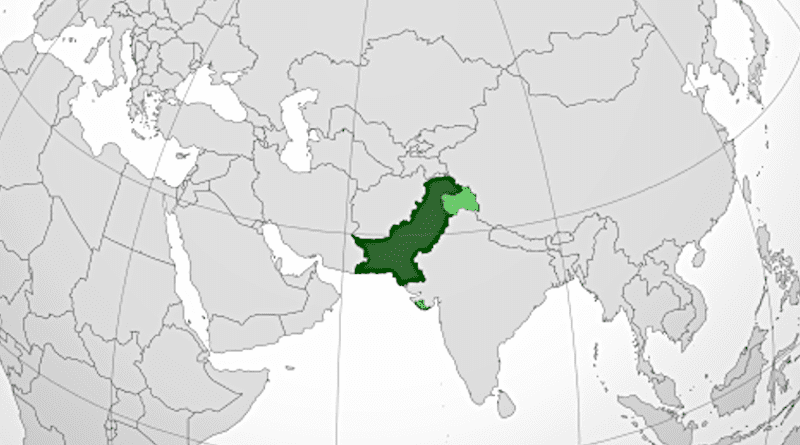Geopolitics: Boon Or Bane For Pakistan? – OpEd
The subject of geopolitics can be found extensively in ancient strategy works like as Aristotle and Montesquieu – where western philosophers dispute the political implications of geography – such as topography, climate, and access to the state’s open waterways (sea). Johan Rudolf Kjellén, a Swedish political scientist, invented the terms “Geopolitik,” “Oecopolitik,” and “Demopolitik” in the twentieth century. He defines ‘Geopolitics’ as “the condition, difficulties, or possibilities” that are connected to the geographical peculiarities of the nations. The Oecopolitik is the economic aspect that has an influence on the state’s authority, while Demopolitik discusses the issues caused by the state’s radical elements.
Geography has shaped geo-politics since centuries and even today it remains the one of the most critical factor in deciding any country’s standing in the world relevance index. While US, Russia and UK are good examples of nations that have exploited geography to their advantage, Afghanistan, Palestine, Syria, Crimea, Turkey and Pakistan can qualify for some regions that have had troubled history in one way or another, mainly due to their geography. This does not imply that nations thrive on geography alone. Economics, resource utilization and knowledge have also played their part.
Pakistan is located in South Asia and has a unique geostrategic position, a 1000 kms coastal belt on Arabian Sea (mouth of world’s oil supply line) in the south and Central Asia connectivity in the north. A hostile India sitting on East with 3300 kms long border presenting an existential threat, a 2640 kms porous and one of the most difficult border with Afghanistan (Durand Line) on the West and a 750 kms occasionally issue ridden border with Iran.
The geopolitics of the area, which opened up numerous opportunities for Pakistan, it also brought came with it share of disturbances. Russia’s invasion of Afghanistan, emergence of Taliban, presence of AlQaida, US led WoT which ended in a hasty departure had impacted Pakistan negatively. The spectrum of negativity included a devastated economy, intolerant society, religious extremism, enhanced defence spending, polarization of political views, emergence of religiously motivated political factions and above all a loss in global perception and repute.
The current challenge for Pakistan remains the capacity to manage a balancing act between US/West and China/Russian camps. Pakistan has said unequivocally that it would not participate in any next cold war – yet Pakistan may be drawn in. Pakistan’s geostrategic position has brought it closer to China, since it provides the quickest trading route via the Arabian Sea. China’s emergence as an economic and regional force is a fact, and Pakistan has rightly opted to form an alliance with the rising global power. The China-Pakistan Economic Corridor (CPEC) has been designated as the flagship project of the Belt and Road Initiative (BRI), which has attracted investment in the nation. This fact brings with it an unwanted hostility cum interest of the West and US while energizing Indian plans against a nuclear Pakistan. Middle Eastern nations also prefer to maintain a certain clout over Pakistan, historically using religious funding as a tool. Pakistan was relevant decades ago, relevant today, likely will remain relevant in future too…but is likely to pay a hefty price for relevance.
The geographical system is linked by peace and war; hence, the shifting geopolitical environment is bound to have contestation between regional and extra-regional powers for strategic reasons. The US and Indian designs to maintain dominance in the region, tie up Pakistan on her West and present a challenge to rising dragon (China) has a detrimental influence on regional stability and, eventually, disrupts regional economic programmes. The complex geopolitical environment that surrounds Pakistan has made it a vital component of the mosaic in regional and global interests, making it vulnerable to conspiracy by each external party advancing personalities and policies that benefit them rather the country.
To be fair to analysis, blaming geography for all the ills of Pakistan will not be a prudent approach. Pakistan will have to accept responsibility of many issues that proved to be stumbling block in national progress. From an exemplary rising and progressing country to a dwindling economy the country has blundered many times. From poor policy implementation to weak economic decisions, from political stability to military interruptions, feudalism to dynastic politics, from religious intolerance to ethnic fissures, Pakistan has axed her ascending graph many times.
Despite all of the problems, Pakistan has shown remarkable resilience and promise in every discipline. From glimpses of excellence to remarkable end results sprinkled in many social, corporate, education, diplomatic and technological domains, Pakistan has proved her mettle. While it still is far from what her potential is, the journey continues. Surviving in a hostile geopolitical environment is never easy, not many countries in the world can claim to navigate through the stormy waters that surround Ship Pakistan. This is the reality of PAKISTAN as it continues to progress against all external and internal odds.
The author holds an M.Phil from National Defence University and freelance writer and can be reached at [email protected].

